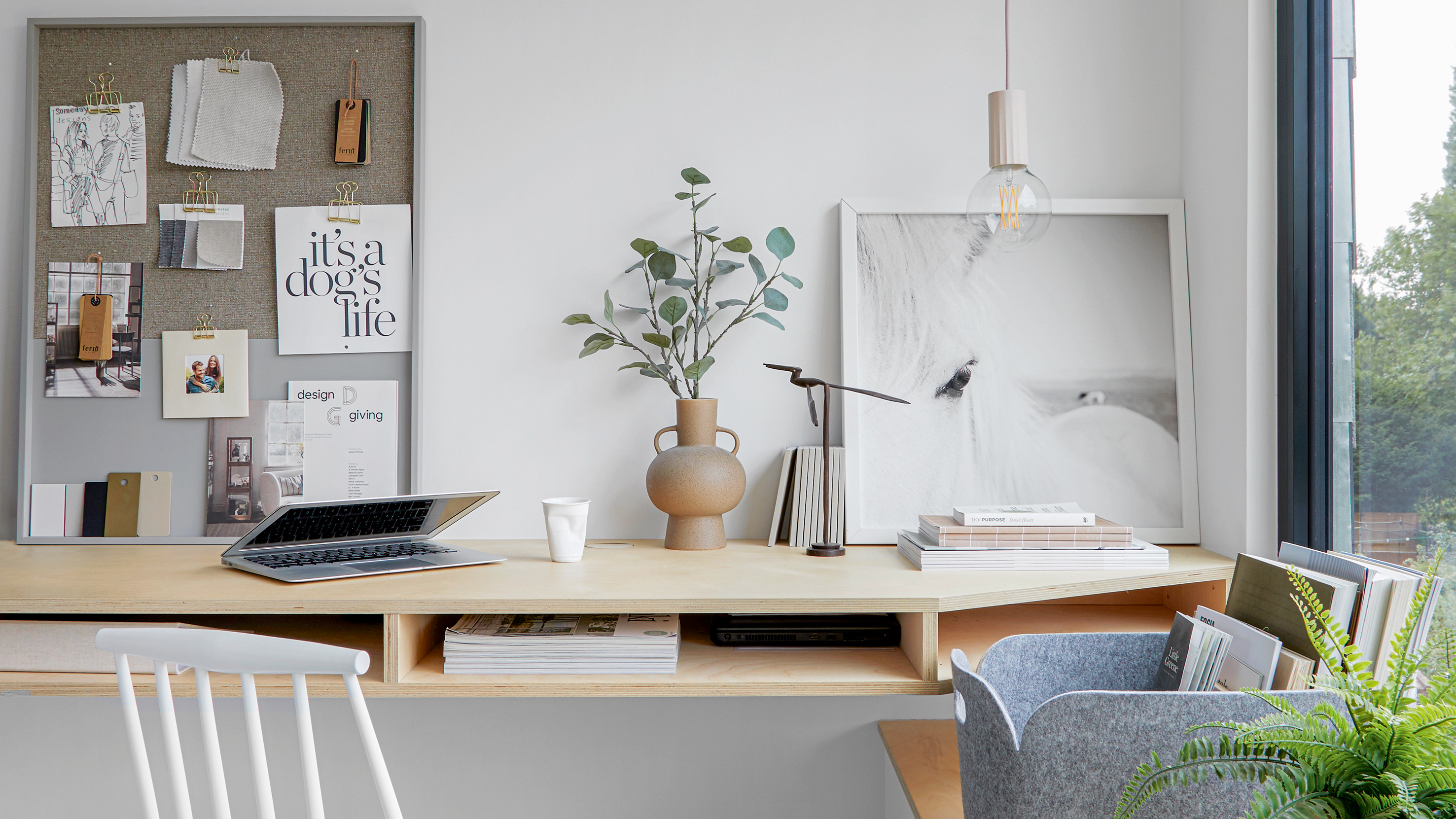
With the work-from-home revolution, the need for a designated home office has become more important than ever. In addition to a beautiful desk and a quiet space to focus, however, you might want to spare a thought to feng shui to ensure your study is the productive environment you require.
That's because bad home office feng shui isn't conducive to a positive workflow. The ancient Chinese art claims that a bit of intentional furniture placement is all it takes to bring positive energy - or qi - into our homes, and there are few places where that's more important than the room you work in. If you want to feel energized and focused at your desk and be rewarded with wealth and prosperity in your working life, good feng shui is a must.
"It’s so important to have a positive and welcoming space in which to work from home," explains feng shui and interior therapy expert Suzanne Roynon. "Creating a working environment which both inspires and enables focus makes us more productive and ensures a good work-life balance." Here are seven changes you can make in your space today to welcome good feng shui into your home office.
1. Position your desk in the commanding position
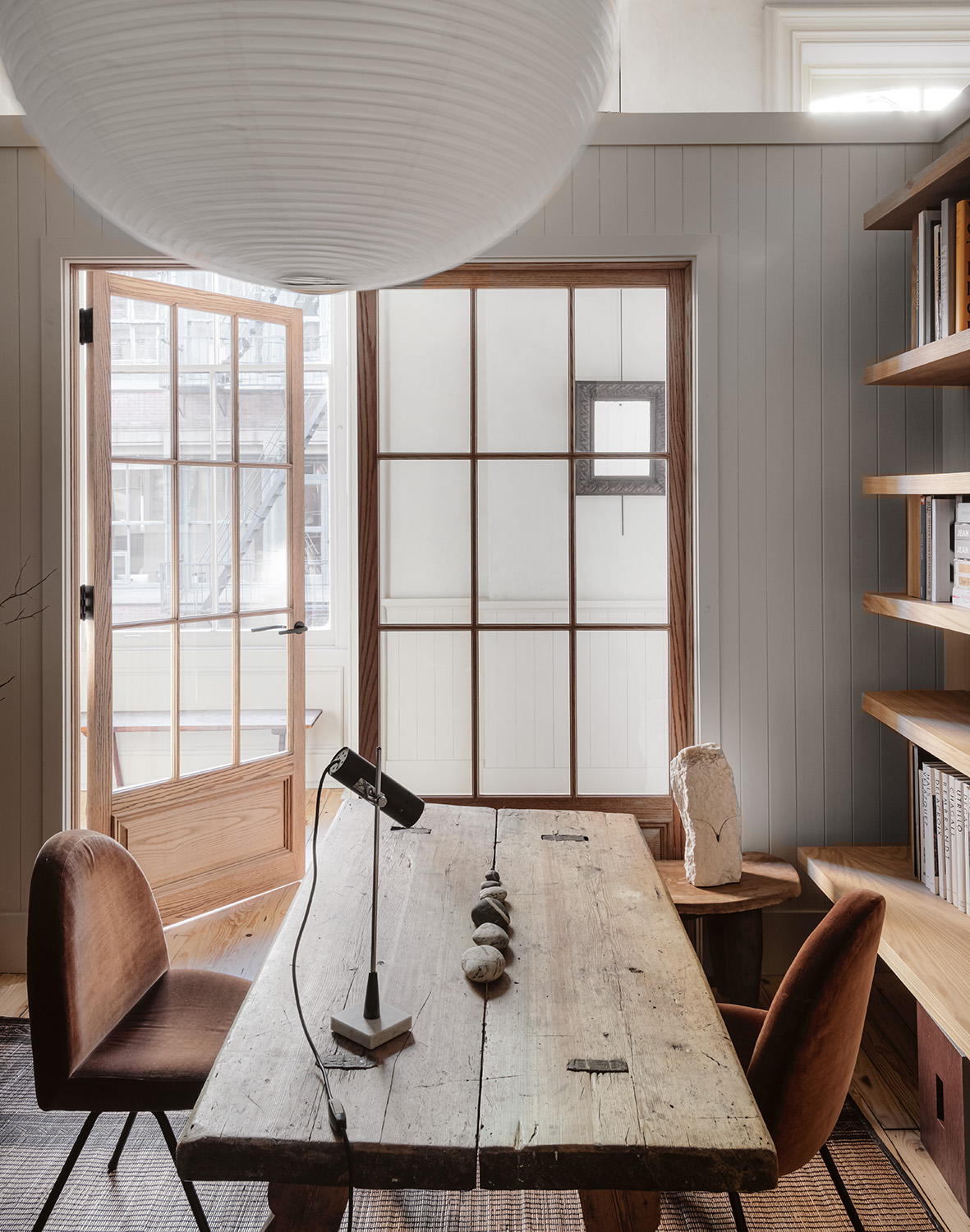
One of the most important principles of feng shui is the so-called "command position"; the place in the room where you're most in control. In the case of home offices, it should dictate where you put your desk.
"This is by far the most important aspect of setting up a home office," explains feng shui and interiors therapy consultant, Suzanne Roynon. "Activating the Command Position prioritizes wellbeing while being in control of the room, and therefore the work on the desk, and that can only be a good thing."
She stresses the importance of recognizing yourself as the "CEO" of your WFH space. "A Chief Executive would not be crammed into a corner facing the wall, as this would make them feel vulnerable and ineffective," she says. "The same goes for you. When working at home you are in charge, so treat yourself as the boss of your domain."
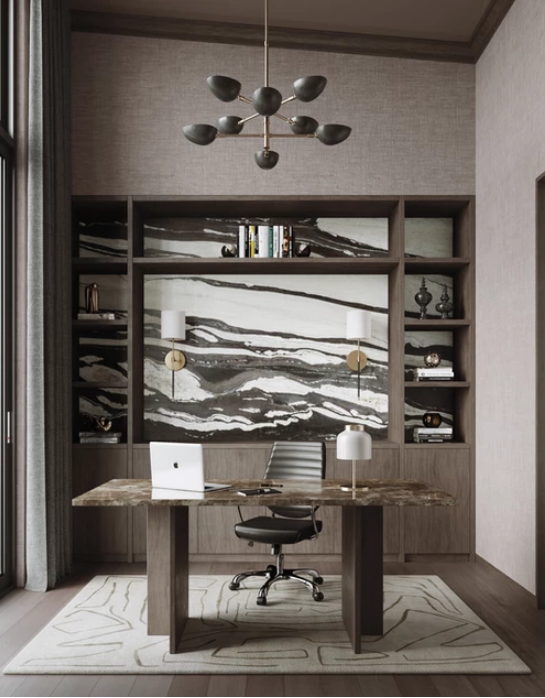
So how do you harness the commanding position in home office feng shui? According to Laili Kafi Gonzalez, Feng Shui expert at The Meazured Life, you should ensure you have a solid wall behind your desk, with a view of the entrance to the room. "Energetically, this creates a solid foundation for you with the support from the wall, and allows you to receive the energy of things coming towards you with greater awareness," she says.
"If there's really no option other than to face a wall, angle a small mirror on the desk so you can see the door in your peripheral vision," adds Suzanne. "It's not as effective as an uninterrupted view, but it's certainly better than nothing."
2. Choose a high-backed chair
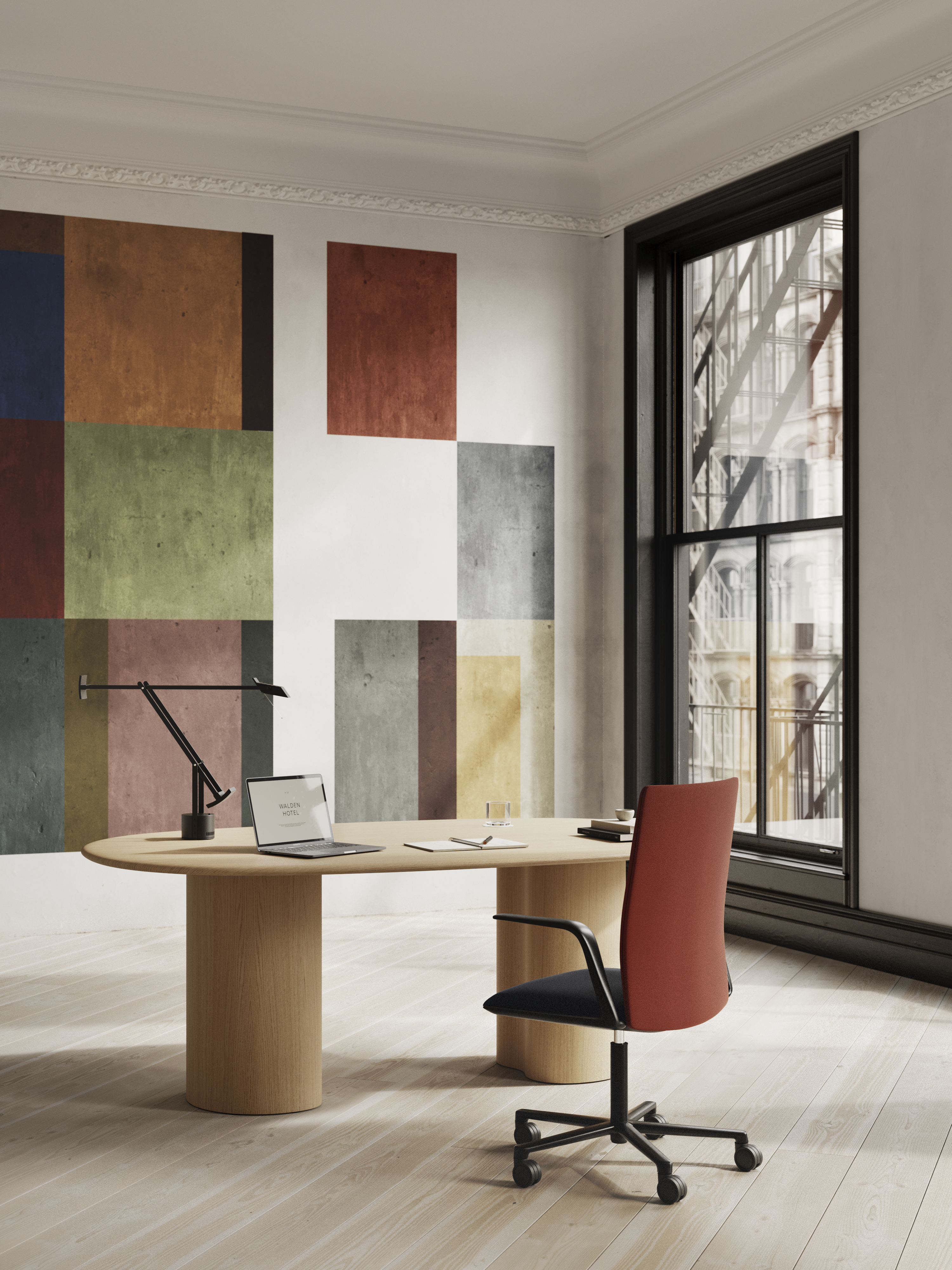
We tend to give a lot of thought to desk ideas for the home office while the chair we choose can be overlooked. Yes, we think about ergonomic support and ease of movement, but we don't usually think about how our office chair supports harmonious energy flow. And yet, it's one of the first things feng shui experts prioritize when designing a home office.
"A solid, high-backed chair can provide you with support," says Laili, both physically and through a feng shui lens. Chairs with spindles are to be avoided, as are stools or benches since these interrupt the flow of qi within the space.
"Similarly, the chair should be positioned with a solid wall behind it," Suzanne reminds us. "This provides stability and emotional support during working hours. When the area behind you offers protection, nothing can creep up on you unnoticed and, interestingly, you'll feel more organized with your workload."
3. Clear space above your head

Shelves offer great storage within home offices. But, while you might think having books and files within easy reach of your desk is the most practical set-up, feng shui experts urge you to keep the space above your head completely clear.
"Lift the energy around your body to feel more expansive and see the bigger picture," says Suzanne. "Having cabinets, shelves, or pinboards above a desk or chair can cause headaches, or neck, shoulder, and back pain, so be mindful of anything hanging close by and consciously move your chair away from it."
This even includes architectural features such as ceiling beams which, while characterful, can place downward pressure on the body, according to Suzanne. "Even moving a couple of inches to one side of a beam will make a positive difference to the quality of your workspace," she says.
4. Keep clutter to a minimum
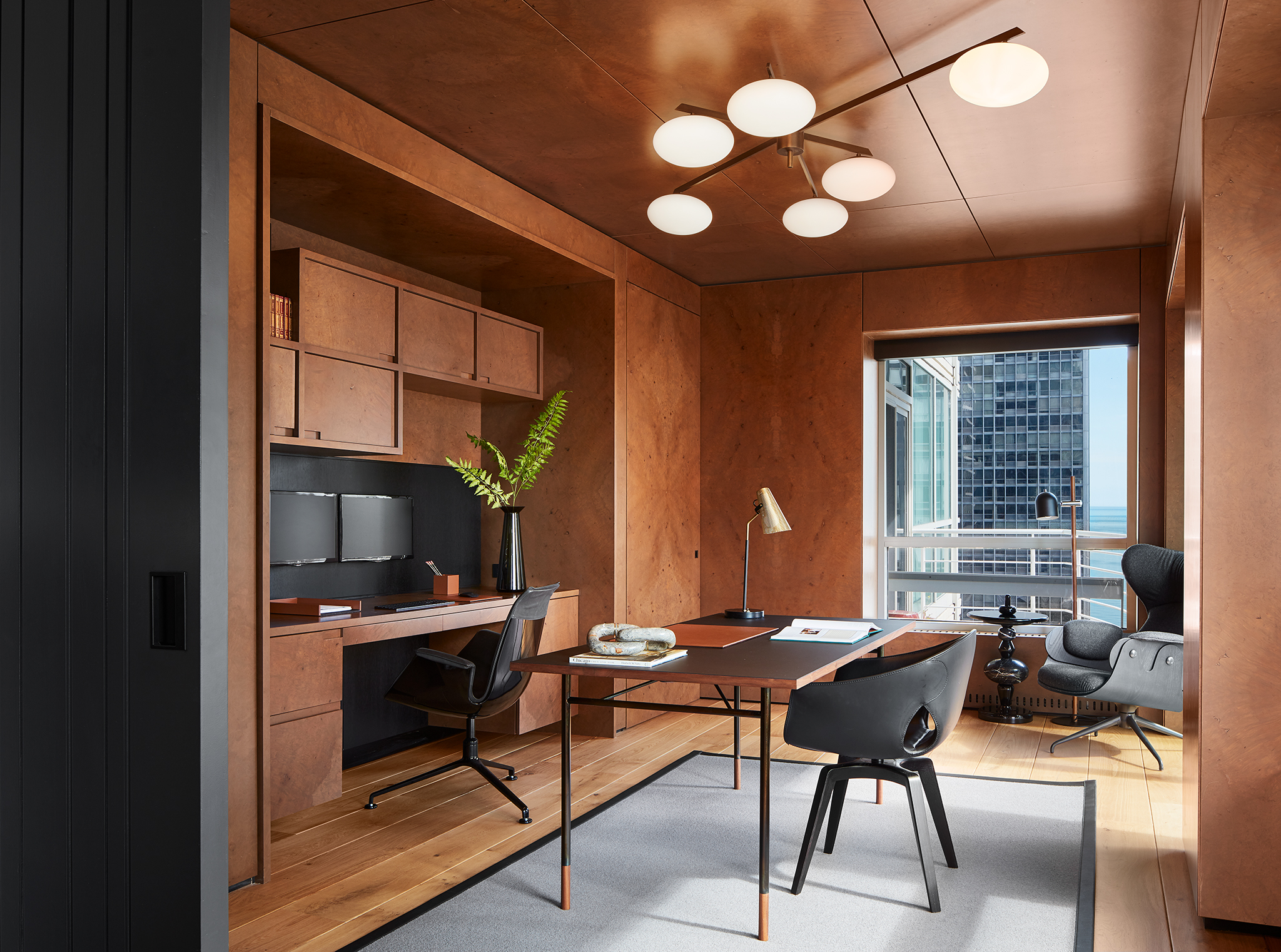
Whichever room of the home is in question, you should always declutter for better feng shui. "Sorry for trotting out the 'tidy desk, tidy mind' theme again, but it’s true," says Suzanne. "If you work on a cluttered, overcrowded desk, with an overflowing trash bin beside you, you simply won't be as efficient, and that will make you miserable."
"Keep the space clear of clutter, particularly anything related to old businesses and projects that are closed and no longer necessary for work or taxes," adds Laili. A great way to stay on top of this is by investing in some good home office storage ideas. Consider finding a desk with drawers for your stationary, and use a stylish desk organizer like this one, from Target, for your files and paperwork.
5. Minimize distractions for a clear outlook
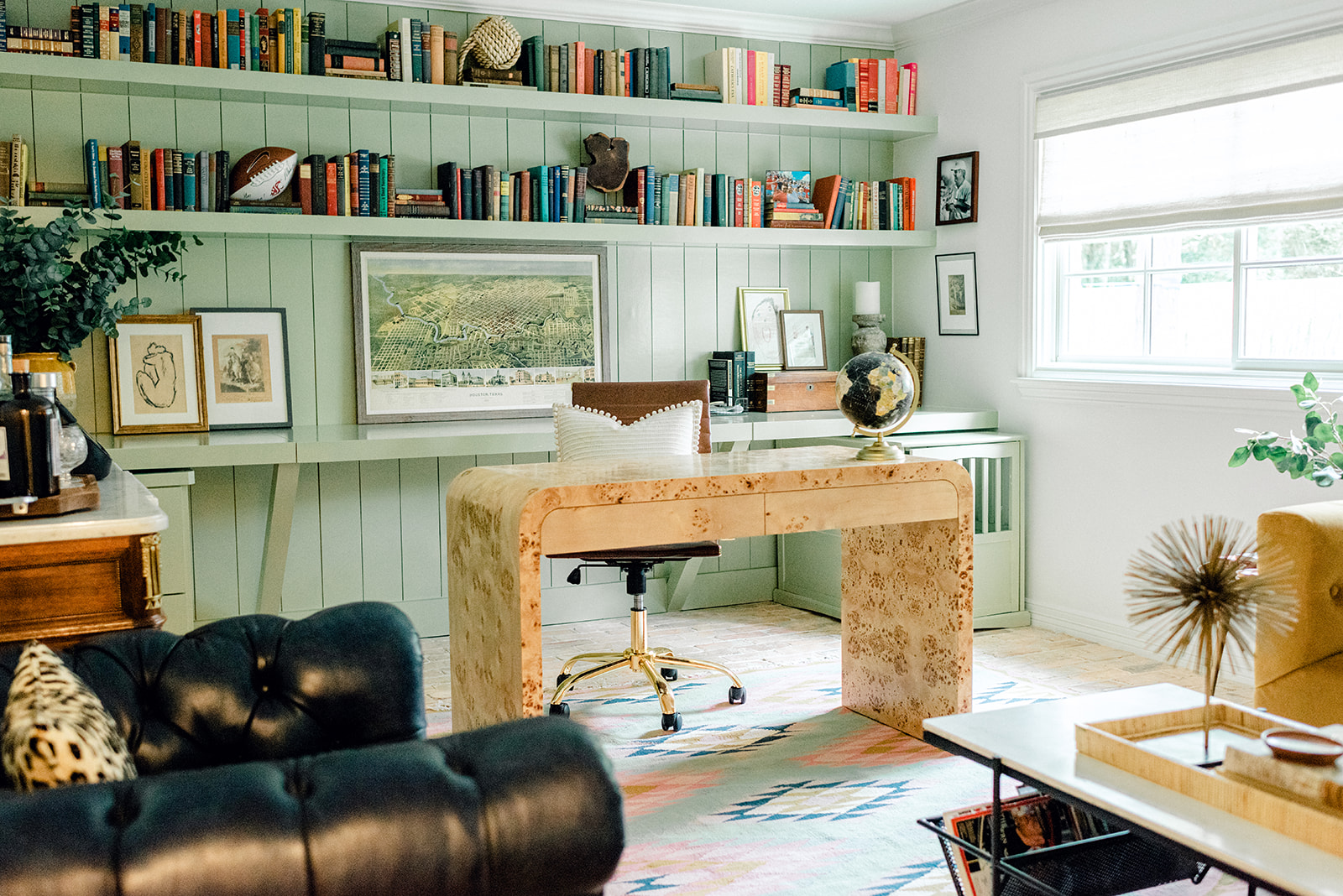
Decor is a vital element of design, but in a workspace, it should be kept to a minimum, and this goes for family photos or meaningful decorations. This is to reduce distractions and allow for a more focused environment to work effectively from home. According to feng shui, too many small sentimental details will drain your energy.
"If you find your mind wandering to the kids during an important video call, it’s a good plan to relocate photos and mementos out of your line of sight," says Suzanne. "Living a feng shui lifestyle offers great guidance on the most auspicious places to display precious family pictures – in the East of the home for adults and the West for very young children."
6. Be intentional with your wall art

To make your home office better, feng shui principles recommend that you surround yourself with portraits or images that evoke your goals and visions to manifest success and good fortune in your career. "These can be specific images or abstract images that invoke a specific feeling such as abundance," says Laili.
Think carefully about what the depiction represents, too. You don't want the inherent meaning of a piece of art to have a negative effect on your future. "A still lake or boat tied up in harbor may indicate you're going nowhere, depictions of ruins, lonely or derelict buildings may define much more about your situation than just your career, and solo images can suggest you feel unsupported," says Suzanne. "See the walls in your workspace as a subconscious expression of your life and assess whether they are giving you the inspiration you need."
7. Flood your home office with natural light
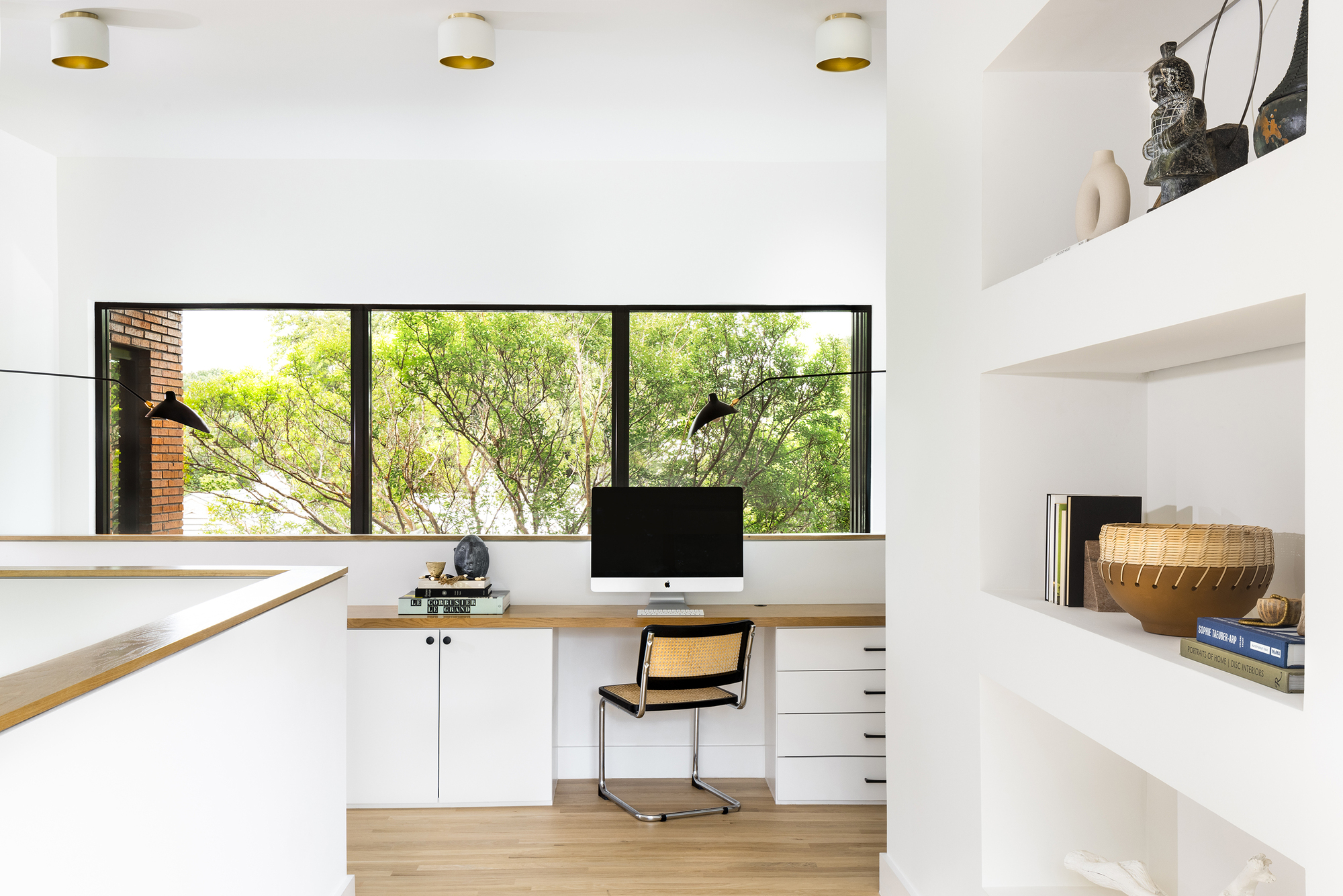
Good practice for home office feng shui is to maximize natural light where possible, so spare a thought about your home office lighting ideas. In feng shui, rooms with plenty of sunlight are thought to enhance well-being and encourage a more harmonious environment. From a more empirical point of view, natural light can improve our circadian rhythm and boost energy levels.
"This is so important, especially during the darker winter months when the absence of natural light can have a crushing effect on mood and motivation," says Suzanne. "Seasonal Affective Disorder (SAD) is well known, and yet many home offices lack sufficient light to trigger the chemicals in the brain to work effectively." If your home office doesn't have many windows, Suzanne suggests a light therapy lamp as an alternative. (We love this one from Lumie, available at Amazon.)
FAQs
What direction should my desk face?

Most feng shui consultants argue that the direction your desk faces plays an important role in designing a home office conducive to vitality and prosperity, but the answer is unique to each individual. "It can change depending on the individual's birthdate as some directions are more auspicious than others," says Laili.
Suzanne adds that every person has four optimal directions that are regarded as more auspicious. "This is based on the 'Kua' or 'life number', which is decided by birthdate and gender," she says. Like other aspects of Feng Shui, it is preferable to receive expert guidance rather than guess, and in any case, the layout of many homes makes using 'lucky' directions impractical."
Finding the optimum direction for your desk isn't always clear-cut, but the most important takeaway to remember is that the entrance to the room should always be in view. For more guidance on the precise direction depending on the individual and the unique home layout, it's best to hire a feng shui consultant to assess your space.
Price: $16
This book offers a mix of mindfulness, rituals, and intentional living to bring Feng Shui principles into your home. The authors offer tips on how to work with the traditional practice in a modern way, based on their own cultural experiences and practices.
Price: $18.89
Make sense of the ancient principles of Feng Shui with this book, which looks at the practice through a modern lens. It argues that Feng Shui has even more relevance in our current age, unpacking how our homes and workspaces have a newfound and outsized impact on our well-being.







